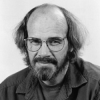Jack Horner

Jack Horner
John R. "Jack" Horneris a non-degree holding American paleontologist who discovered and named Maiasaura, providing the first clear evidence that some dinosaurs cared for their young. He is one of the best-known paleontologists in the World. In addition to his many paleontological discoveries, Horner served as the technical advisor for all of the Jurassic Park films, had a cameo appearance in Jurassic World, and even served as partial inspiration for one of the lead characters, Dr. Alan Grant. He studied...
NationalityAmerican
ProfessionScientist
Date of Birth15 June 1946
CityShelby, MT
CountryUnited States of America
Unfortunately, with dinosaurs, we haven't had enough specimens to determine how much variation there is within a species.
The worse the country, the more tortured it is by water and wind, the more broken and carved, the more it attracts fossil hunters, who depend on the planet to open itself to us. We can only scratch away at what natural forces have brought to the surface.
Comparing science and religion isn't like comparing apples and oranges - it's more like apples and sewing machines.
In the lifetime of one person, we went from figuring out where we came from to figuring out how to get rid of ourselves.
When I was growing up in Montana I had two dreams: I wanted to be a paleontologist and I wanted to have a pet dinosaur and so that's what I've been striving for all of my life.
The chicken is a dinosaur. I mean, it really is. You can't argue with it, because we're the classifiers and we've classified it that way.
A dinosaur out of context is like a character without a story. Worse than that, the character suffers from amnesia.
I just cannot imagine why anyone would want to be really famous. You go to a restaurant and people are pointing at you and they talk about you and they whisper and it is very disconcerting; it is a very odd feeling.
Evolution - evolutionary change - does not happen quickly.
In the future, I'd like to see paleontology as a whole get a lot more quantitative.
I like the broken up ones, I like to saw holes in them and look inside of them, ... When it comes to science, putting up a skeleton and just looking at it just doesn't do anything for me. I want to know something about that dinosaur.
Dinosaurs are built just like birds - they can squat down, they can get up. Mammals, when we lay down, we throw our legs out to the sides - birds cannot do that. Dinosaurs could not do that either.
It's a good thing not very many people were watching,
The whole thing is just totally a misunderstanding.